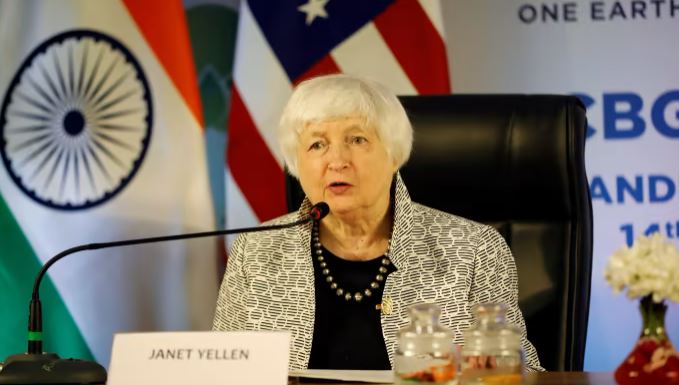
According to U.S. Treasury Secretary Janet Yellen, the US is collaborating with India to find ways to cut the cost of capital and boost private investment in order to hasten India’s energy transition.
Following a bilateral discussion with India’s finance minister, Nirmala Sitharaman, Yellen stated that the two countries have been cooperating on a variety of economic problems, including enhancing supply chains and commercial and technological partnership.
She made the remarks in a statement while attending the G20 in Gandhinagar, the capital of Gujarat, one of India’s most industrialised states. “In particular, we look forward to working with India on an investment platform to deliver a lower cost of capital and increased private investment to speed India’s energy transition,” she said.
Although South Africa, Indonesia, and Vietnam have already agreed with public and private sector lenders to help accelerate their shift away from fossil fuels via JET-Ps established with wealthier nations, Yellen did not refer to this platform as a “Just Energy Transition Partnership” (JET-P).
Energy analysts claim that India, a significant emitter in absolute terms but relatively low in terms of emissions per person, wants a JET-P on its terms: no phaseout of coal and funding for the expansion of clean energy in the form of grants rather than loans.
As the world is currently not on track to fulfil its climate objectives, richer, heavy emitting nations are under pressure to assist poorer countries in hastening their transition to cleaner energy in advance of the COP28 climate negotiations in Dubai in November.
John Kerry, the U.S. climate envoy, was in Beijing at the same time as Yellen to address the climate crisis with his Chinese counterpart. This was Kerry’s third trip to India this year and is a sign of the growing closeness between the two countries.
In a statement, Sitharaman noted the potential for development collaboration and alternative investment platforms for renewable energy. “As we look ahead, we reaffirm our commitment to achieve substantial outcomes through close engagement,” she added.
During Prime Minister Narendra Modi’s state visit to Washington last month, which saw a spate of defence and high technology deals signed, the improvement in bilateral relations was emphasised.
Yellen added that an agreement between the two nations on a universal minimum tax scheme is imminent.
Nearly 140 nations agreed in 2021 to a landmark agreement backed by the U.S. that set a minimum 15% tax on giant global corporations and an additional 25% tax on “excess profits.”
Australia and Japan are hoping to advance the global minimum tax during the G20 summit.
Given that some nations will wish to give primacy to national tax regimes, several analysts are sceptical that a deal can be reached for such a significant change in cross-border taxation.
As soon as the G20 finance discussions conclude on July 18, Yellen will travel to Vietnam.

















